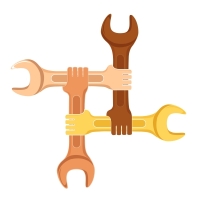 Scouting has seen a lot of change in the first hundred years, even though the mission and aims have remained the same. Within our units, changes in the program often affect us too. But while the methods and values of Scouting remain constant, we often find ourselves in need of changing things within our units to more closely align ourselves with those values.
Scouting has seen a lot of change in the first hundred years, even though the mission and aims have remained the same. Within our units, changes in the program often affect us too. But while the methods and values of Scouting remain constant, we often find ourselves in need of changing things within our units to more closely align ourselves with those values.
We also find that we may need a better way to do some things in order to facilitate a better experience for the boys. For example, we might need a different approach to equipment, fund-raising, or procedures.
Change can be led by anyone with a valuable idea and the support from others, but for various reasons, the committee chair is usually in the best position to advocate change. Continue reading “Promoting your own ideas for change”





